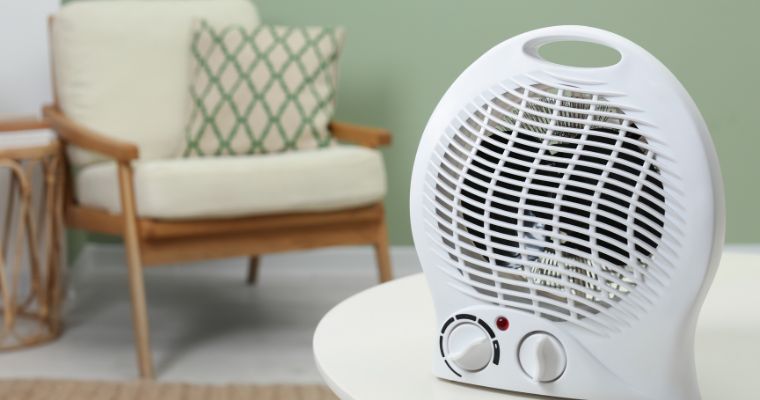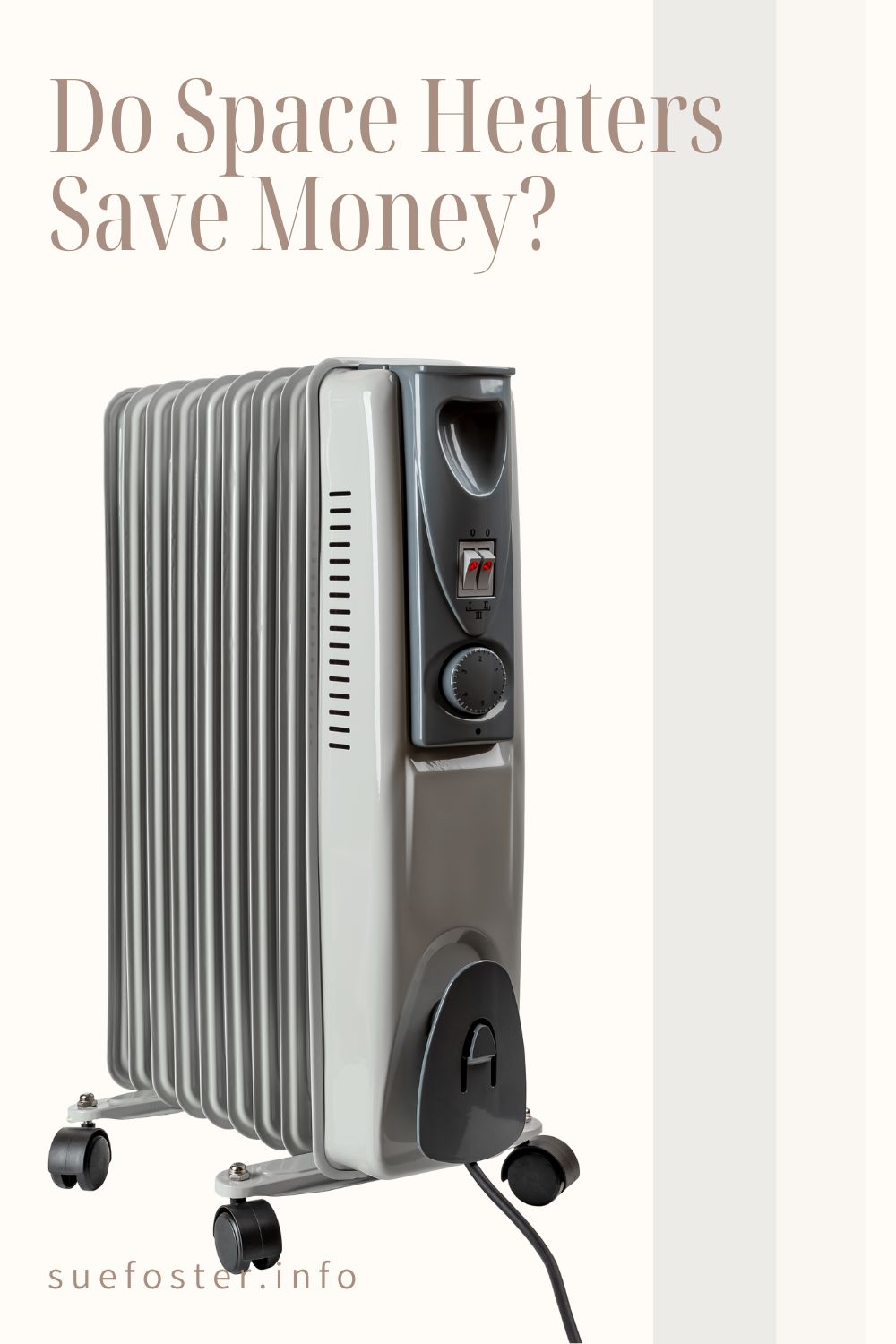The answer to whether space heaters save money depends on various factors, including the type of space heater you are using, the cost of energy in your area, and how you use the space heater.
In general, space heaters can be more cost-effective than central heating systems if you only need to heat a small space for a short period of time. For example, if you spend most of your time in the living room and only need to heat that room, using a space heater instead of turning on your central heating system can save you money on your energy bills.

However, if you need to heat multiple rooms or need to keep a smaller space heated for an extended period of time, a central heating system will probably be more cost-effective in the long run.
Additionally, the cost of electricity or gas in your area will also impact how much money you can save by using a space heater. If electricity is more expensive than gas, a gas-powered space heater may save you more money.
Overall, it’s important to consider your needs and circumstances when deciding whether a space heater is right for your needs.
What is the most efficient type of space heater?
The most efficient type of space heater will depend on various factors, including the size of the room you are heating, the level of insulation in your home, and the type of fuel or energy available in your area.
Here are some common types of space heaters and their efficiency:
Electric Space Heaters
Electric space heaters like fan and convection heaters are typically used as a supplemental heating source to warm a small area or room.
These heaters are generally cheap to buy and won’t cost you too much money if used in small spaces for short periods of time.
Infrared Heaters
An infrared heater uses infrared radiation to heat objects and people in a room, rather than heating the air. The heater emits infrared radiation that is absorbed by objects and surfaces in the room, which then releases the heat back into the surrounding air. This type of heating is similar to the way the sun warms the Earth.
There are different types of infrared heaters, including portable electric heaters, outdoor patio heaters, and radiant panels that can be installed on walls or ceilings. They are generally more efficient than traditional convection heaters because they do not waste energy heating the air, which can escape through windows, doors, and other openings.
Infrared heaters are more efficient than electric heaters and can be a good choice for heating small spaces.
Oil-Filled Radiator Heaters
These heaters are filled with a special oil that is heated and circulated throughout the heater. They are a good choice for heating larger spaces for longer periods.
Take a look at this Oil Filled Radiator with Adjustable Thermostat – 3 Heat Settings – Electric Portable Heater – Energy Efficient – Safety Tip-Over Protection and safety Cut Off (2000W 2KW).
Propane Heaters
Propane heaters are a better choice for heating outdoor spaces or areas without access to electricity. Bear in mind, they can be costly to operate and require a steady supply of propane.
Pellet Stoves
Pellet stoves burn small pellets made from compressed sawdust or other materials. They can be useful for heating larger spaces for extended periods of time.
The pellets are loaded into a hopper, which automatically feeds them into the stove as needed to maintain the desired temperature.
Pellet stove heaters provide clean, sustainable heat with minimal emissions. They are typically used as a supplemental heating source or as a primary heating source in homes that are well-insulated and energy-efficient. Pellet stoves come in various sizes and designs, including freestanding stoves and inserts that can be installed in existing fireplaces.
The benefits of using a pellet stove include:
- Energy efficiency: Pellet stoves can burn pellets with an efficiency rate of up to 90 per cent.
- Sustainability: Pellet stoves use a renewable fuel source that is produced from waste materials, such as sawdust and wood shavings.
- Clean burning: Pellet stoves produce minimal emissions and are considered a clean-burning source of heat.
- Low maintenance: Pellet stoves require minimal maintenance, with many models featuring automatic cleaning and ash removal systems.
- Programmable features: Many pellet stoves feature programmable thermostats and timers, allowing you to set the stove to turn on and off at specific times and temperatures.
Pellet stoves can be a cost-effective and sustainable option for heating your home. However, they do require a steady supply of pellets and an electrical source to operate the automatic feeding and control systems.
Work out the cost of heating in kilowatt-hours (kWh)
To work out the cost of heating in kilowatt-hours (kWh), you will need to know the following:
- The power rating of your heating system in kilowatts (kW)
- The amount of time your heating system is used in hours (h)
- The cost of electricity per kilowatt-hour (kWh) in your area. This varies depending on your energy provider and tariff.
Once you have these values, you can use the following formula to calculate the cost of heating in kilowatt-hours (kWh):
Cost = Power (kW) x Time (h) x Cost of electricity (pence/kWh) / 100
For example, let’s say you have an electric heater with a power rating of 2kW, and you use it for 5 hours a day. The cost of electricity in your area is 15p per kWh. Using the formula above, the cost of heating in kilowatt-hours (kWh) would be:
Cost = 2kW x 5h x 15p/kWh / 100 = 1.50 GBP/day
Therefore, the cost of heating in kilowatt-hours (kWh) can vary depending on the power rating of your heating system, the amount of time it’s used, and the cost of electricity in your area.
Final Word
Ultimately, the most efficient type of space heater will depend on your specific needs and circumstances. It’s important to consider factors such as the size of the space, the cost of fuel or electricity in your area, and your heating needs before making a decision.


